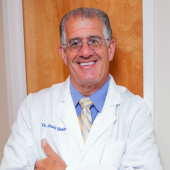Hip, knee, and heart valve replacement are just three examples of how modern medicine helps us not only live longer but also enjoy a more active life. By 2030 the number of total hip and knee replacements is expected to climb to over four million in the US, and today, between 106 and 182 thousand people undergo heart valve replacement surgery every year. This number is expected to rise with the adoption of a less invasive approach. So, we can look forward to remaining physically active and avoid the fatigue associated with reduced heart function.
Today, the replacement of worn body parts seems almost routine. The future is now, and we of more mature vintage can avail ourselves of life-altering enhancements. So, if you have the desire to get up and go, you can do just that thanks to these modern medical miracles.
What does joint and heart valve replacement surgery have to do with dentistry?
Dental disease can lead to dangerous complications during any surgery, and here's why:
- Infections in your gums or teeth contain harmful bacteria. Because they're in your mouth, these bacteria have easy access to your bloodstream. And, they can find their way to your newly placed hip or knee joint; or heart valve.
- The boundary between freshly cut bone and your new joint can be contaminated by bacteria that come from an infection in your mouth. A coating of bacteria (called biofilm) in the surgery site can lead to a severe infection that will jeopardize your joint replacement.
- Such infections are difficult to treat, as well. Because non-porous materials such as metal, ceramic, and plastic are used to make joint replacements, they don't have blood circulating through them. The lack of blood flow means antibiotics cannot fight the infection, and often the replacement has to be surgically cleaned (de-brided).
In worst-case scenarios, the surgeon has to remove the new joint and perform surgery again - when the infection is gone.
Planning hip or knee replacement surgery? You need dental clearance
Most orthopedic surgeons and hospitals require you to obtain a dental clearance before surgery. If you've recently had an exam, then you're golden. Ask your dentist's office to write up your clearance documents. However, if you haven't seen the dentist in a while, go immediately for a thorough examination that includes x-rays.
Dental clearance is necessary for heart valve replacement surgery, too
The same story holds true for heart valve replacement. The replacement valves are either mechanical or made from tissue derived from human or animal donors. When you have a dental infection, bacteria can contaminate the newly placed valve – with dire consequences.
As I mentioned before, most surgeons require dental clearance before surgery. However, the period of last-minute paperwork and preadmission testing leading up to the "big day" is busy. Things can fall through the cracks.
So if you are having surgery and you look forward to being able to walk, run, dance and do your Optimal.me classes again without pain or shortness of breath .,, please - see your dentist now.




Comments